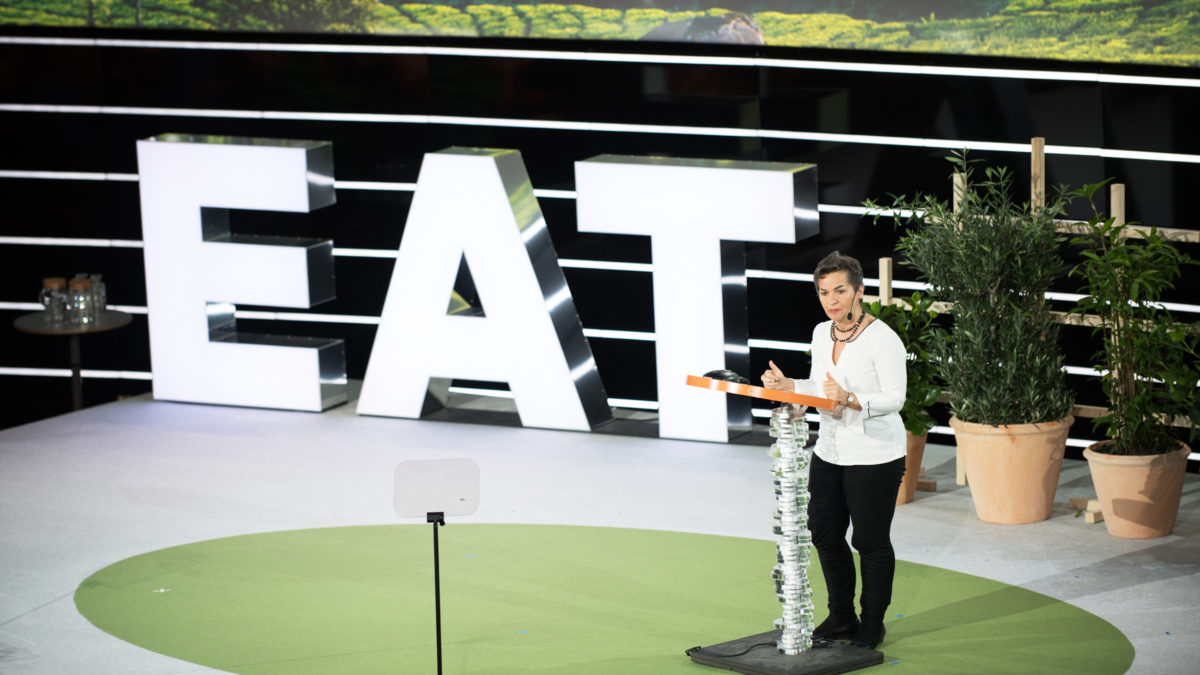“Have you ever heard of anything that was achieved that started with defeatism,” Christiana Figueres asked at the opening session of the EAT Stockholm Food Forum. “Optimism is not the result of success, it is the starting point of success.”
The 61-year-old Costa Rican diplomat would know. As the convenor of Mission 2020, which aims to bend the curve on greenhouse gas emissions by the end of this decade, Figueres is well versed in tackling big challenges. These include the problems of unsustainable land use and food systems.
“We won’t meet the 2020 goals for these areas,” Figueres said. “That is a huge concern.”
The goal is to keep global temperature increases to well below 2 degrees above pre-industrial levels by limiting greenhouse gas emissions. The world also needs to feed a growing population while shifting away from unsustainable food production methods that are straining the environment. Agriculture is the single-largest contributor to climate change, deforestation and land degradation.
Still, Figueres is optimistic about the increasing attention the world is paying to food system and land use issues, likening it to Cinderella finally being invited to the ball.
“Cinderella is now getting a lot of attention,” she said. “This whole topic has finally matured to the point where it is front and center. That is a huge opportunity that we can’t afford to miss.”
According to Figueres, change needs to take place at both the global and local level. It needs to be both systemic and individual and it needs to take into account the very different realities of the global north and global south. Figueres also suggests considering new types of alliances with sectors that haven’t been part of the food system and land use equation, such as oil and gas businesses that could potentially use their expertise in biological carbon capture and storage to help solve deforestation and land degradation problems.
BIO: Christiana Figueres is the convener of Mission 2020, a global initiative that seeks to ensure the world bends the curve on greenhouse gas emissions by 2020. Figueres was executive secretary of the UNFCCC from 2010-2016 and directed the Paris Agreement of 2015. Her responsibilities include vice chair of the Global Covenant of Mayors, Climate Leader for the World Bank, Distinguished Fellow of Conservation International, Board member of Climate Works and the World Resources Institute, member of the Rockefeller Foundation Economic Council on Planetary Health and member of the Leadership Council of the Global Alliance for Clean Cookstoves.
